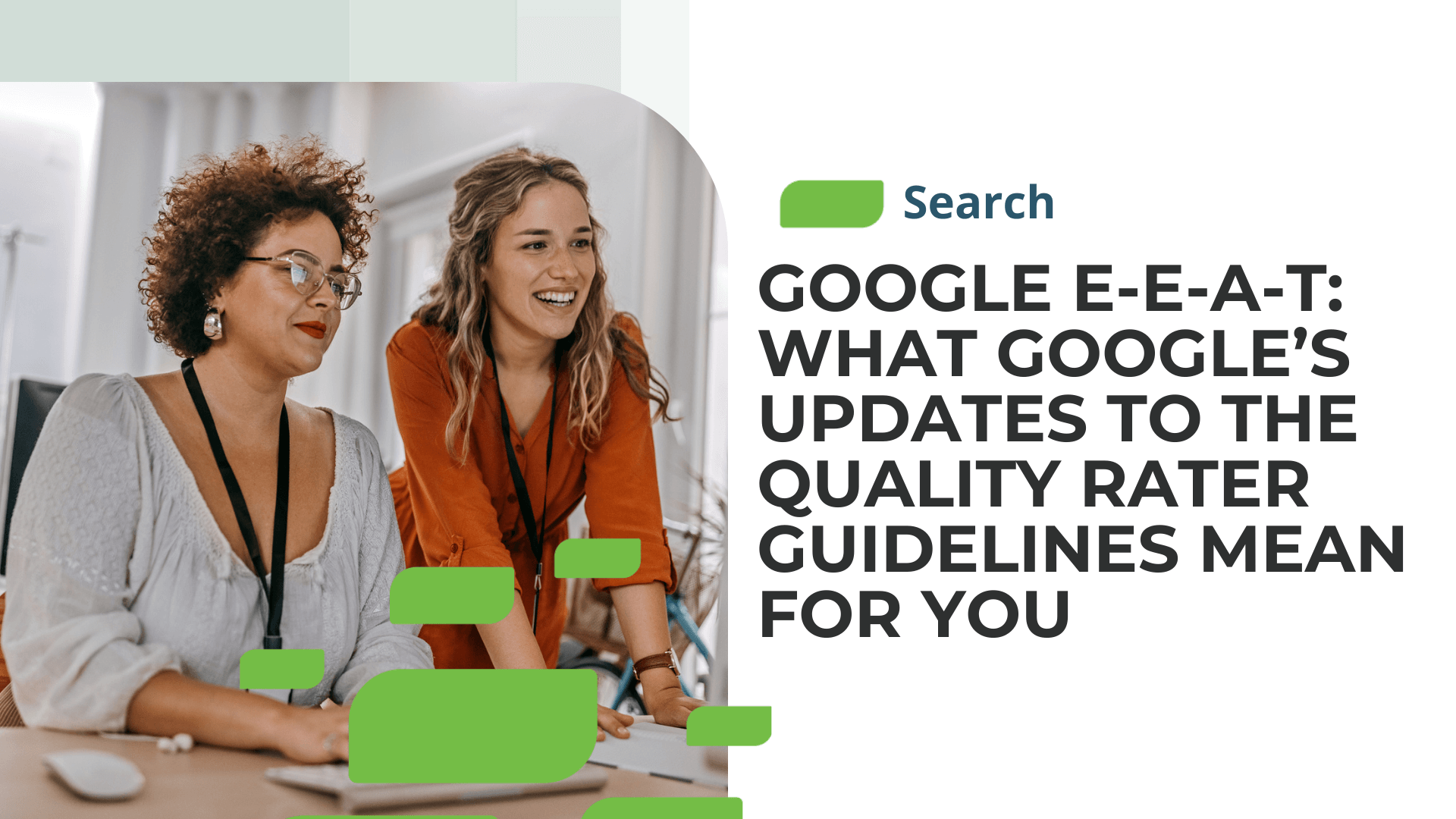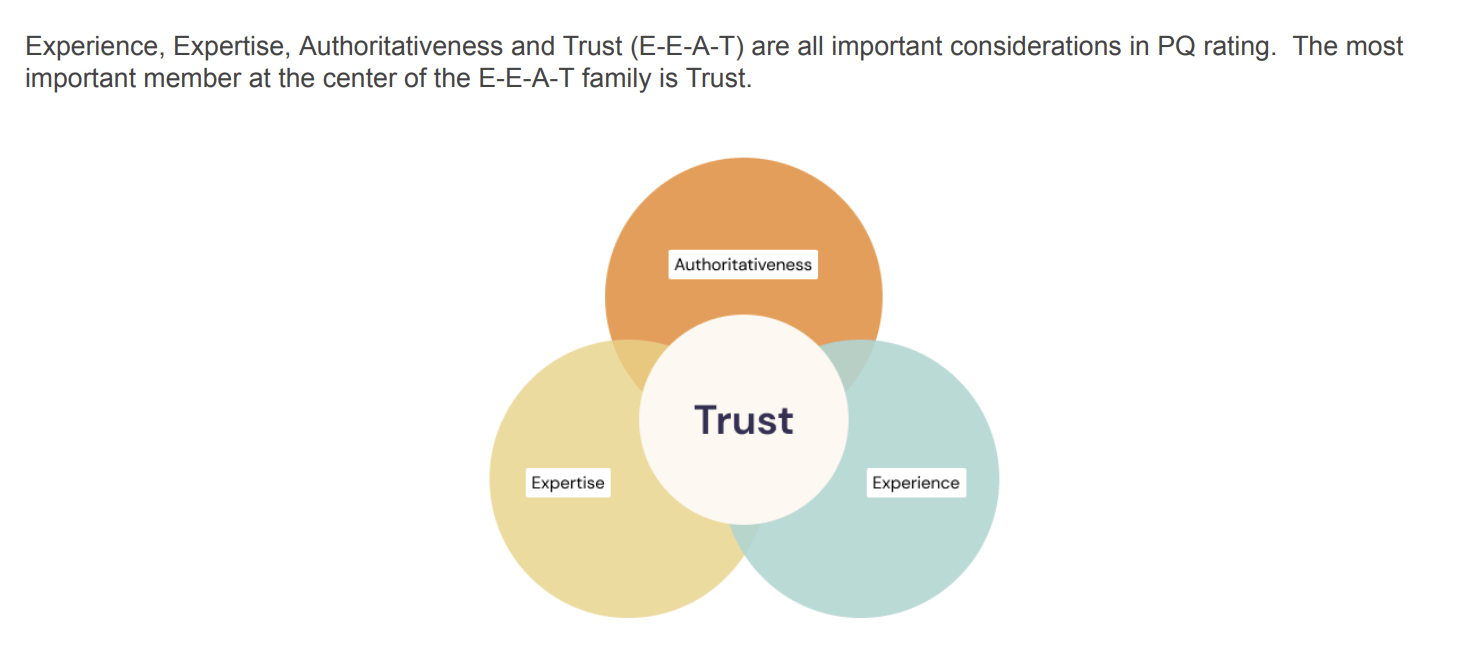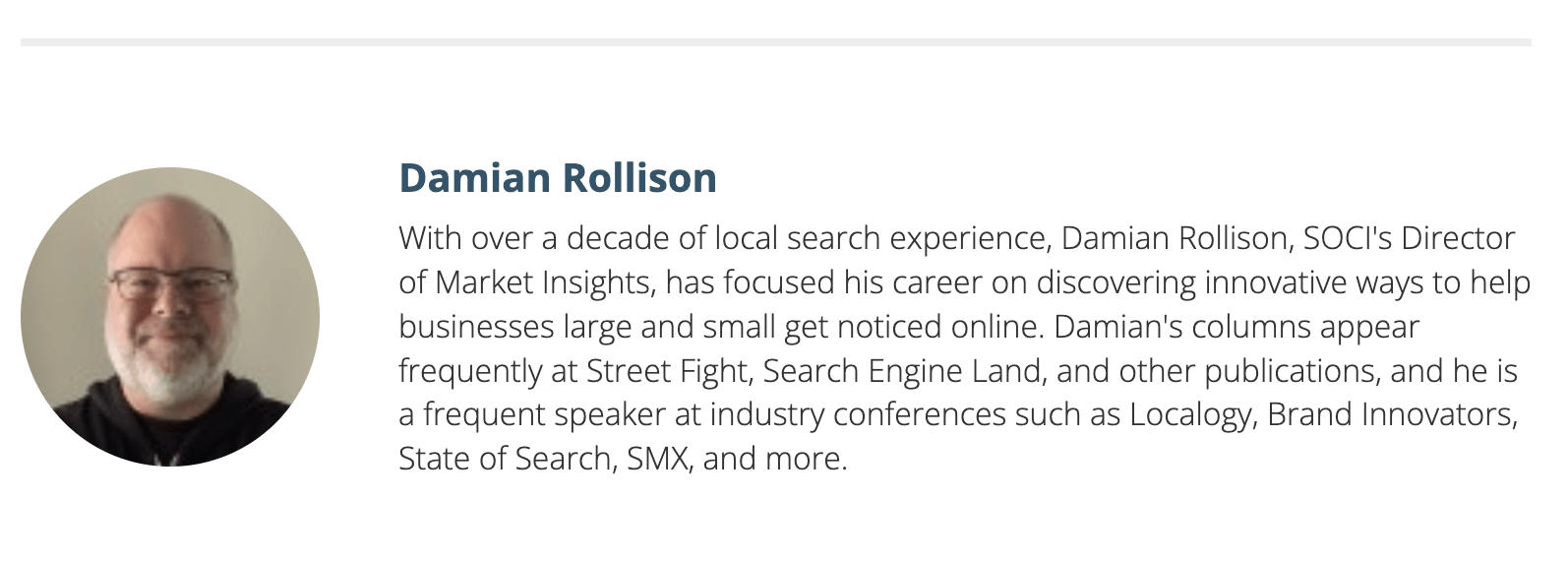Google E-E-A-T: What Google’s Updates to the Quality Rater Guidelines Means for You

Google E-E-A-T: What Google’s Updates to the Quality Rater Guidelines Mean for You
In December 2022, Google significantly updated its search Quality Rater Guidelines. These guidelines help Google evaluate the quality of websites. The most notable change was adding another E, for ‘experience,’ to the already popular acronym E-A-T, making it Google E-E-A-T.
What is E-E-A-T?
First, let’s break down the acronym E-E-A-T and clarify what each term means.
- Experience
- Expertise
- Authoritativeness
- Trustworthiness
Experience is the new quality rating; it considers the extent to which the content creator has first-hand experience with the topic.
Expertise refers to the level of knowledge or skills the content creator has for the topic to write or make claims about it.
Authoritativeness considers whether the content creator and website are trustworthy and a known source for the topic.
Trustworthiness, according to Google, is the most important page quality indicator. Google considers if the page is accurate, honest, safe, and reliable.

Courtesy of Google
How E-E-A-T Affects SEO
E-E-A-T isn’t technically a direct search ranking factor. According to Google, “these [E-E-A-T] guidelines are what are used by our search raters to help evaluate the performance of our various search ranking systems, and they don’t directly influence ranking.”
While it doesn’t directly influence ranking, E-E-A-T is a guideline Google uses to determine the quality of content. Google uses E-E-A-T as a template to rate the quality of every site and its content for every search query.
If you’re creating people-first content that benefits other humans, you’re likely already adhering to these E-E-A-T guidelines, which can indirectly influence search rankings.
How to Improve Your E-E-A-T
1. Provide an About Me Section or Author Page
Have an “About Me” section on your content pages or a link to an author page to help Google and users understand who wrote the piece. Here’s an example:

If you’re in a more technical or regulated field, such as financial services or healthcare, you can also have a note about an expert in the field who has reviewed and approved the content.
These tactics will especially help with the new guidelines around ‘expertise.’
2. Gain Backlinks and Mentions from Authoritative Sites
To improve authoritativeness, you should try to gain backlinks and mentions from authoritative sources. Not only do strong backlinks help with E-E-A-T, but backlinks also improve your SEO. Ideally, you’ll gain links from industry experts or well-known sites like online newspapers, authoritative companies, and respected blogs.
3. Cite High-Quality Sources
Similar to receiving backlinks from authoritative sites, linking to high-quality sources also improves your E-E-A-T. These can be trusted studies, surveys, reports, news articles, or quotes from trusted sources.
Furthermore, you can also link to your proprietary studies as long as they’re well-written and thorough.
4. Update Your Content
Another simple way to build E-E-A-T is ensuring your content is up-to-date and factual. Research or data studies especially need annual updating because users often perceive data over a year old to be outdated.
Some content needs monthly or quarterly updates. For instance, if you’re a property management company (PMC) writing about national or local rental trends, this likely needs to be updated monthly.
Now that you understand the importance of E-E-A-T and how you can better adhere to Google’s guidelines, it’s time to start creating high-quality content.




